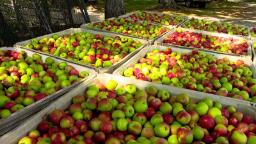Refining gold has a long history in the family of Satish Pratap Salunke.
Following in the footsteps of his father and grandfather, he and his business collect scrap gold from jewellers, melt it down and sell it back to the jewellers in the form of gold bars.
He has two refineries, one in Kochi in the southern state of Kerala and the other in Tiruchirappalli in Tamil Nadu. Relatives have refineries elsewhere in the south of India.
He has two refineries, one in Kochi in the southern state of Kerala and the other in Tiruchirappalli in Tamil Nadu. Relatives have refineries elsewhere in the south of India.
Almost every town in India will have at least one small refinery similar to those run by Mr Salunke. It is known as the “unorganised” refining sector, which distinguishes it from big refiners who make gold bars and coins from imported, unrefined gold.
It is estimated that, in total, Indian households hold a massive 25,000 tonnes of gold, and some of that is always available for sale, particularly when the price of gold is high or the economy is bad and people want to raise some cash.
Jewellers may process returned gold themselves but will often use small refiners who will make the gold back into bars.
Mr Salunke says local jewellers like to deal with small refiners like his, because they work quickly and are happy to accept cash.
Refining gold has a long history in the family of Satish Pratap Salunke.
He has two refineries, one in Kochi in the southern state of Kerala and the other in Tiruchirappalli in Tamil Nadu. Relatives have refineries elsewhere in the south of India.
Following in the footsteps of his father and grandfather, he and his business collect scrap gold from jewellers, melt it down and sell it back to the jewellers in the form of gold bars.
Almost every town in India will have at least one small refinery similar to those run by Mr Salunke. It is known as the “unorganised” refining sector, which distinguishes it from big refiners who make gold bars and coins from imported, unrefined gold.
He has two refineries, one in Kochi in the southern state of Kerala and the other in Tiruchirappalli in Tamil Nadu. Relatives have refineries elsewhere in the south of India.
He has two refineries, one in Kochi in the southern state of Kerala and the other in Tiruchirappalli in Tamil Nadu. Relatives have refineries elsewhere in the south of India.
Almost every town in India will have at least one small refinery similar to those run by Mr Salunke. It is known as the “unorganised” refining sector, which distinguishes it from big refiners who make gold bars and coins from imported, unrefined gold.
It is estimated that, in total, Indian households hold a massive 25,000 tonnes of gold, and some of that is always available for sale, particularly when the price of gold is high or the economy is bad and people want to raise some cash.
Jewellers may process returned gold themselves but will often use small refiners who will make the gold back into bars.
Mr Salunke says local jewellers like to deal with small refiners like his, because they work quickly and are happy to accept cash.
#India039s #army #gold #refiners #face #competition
Note:- (Not all news on the site expresses the point of view of the site, but we transmit this news automatically and translate it through programmatic technology on the site and not from a human editor. The content is auto-generated from a syndicated feed.))



